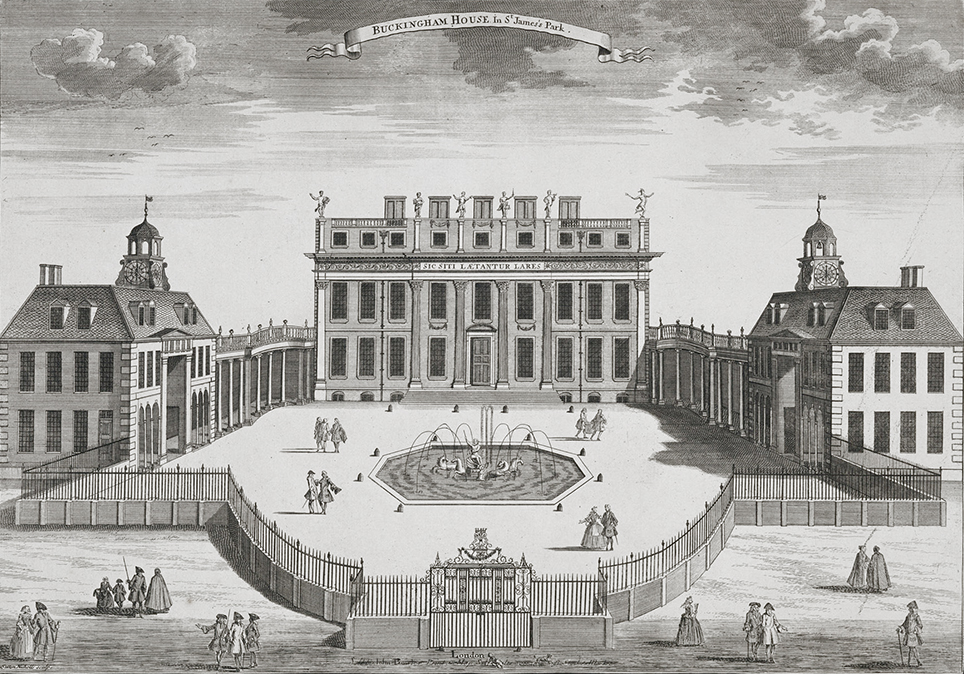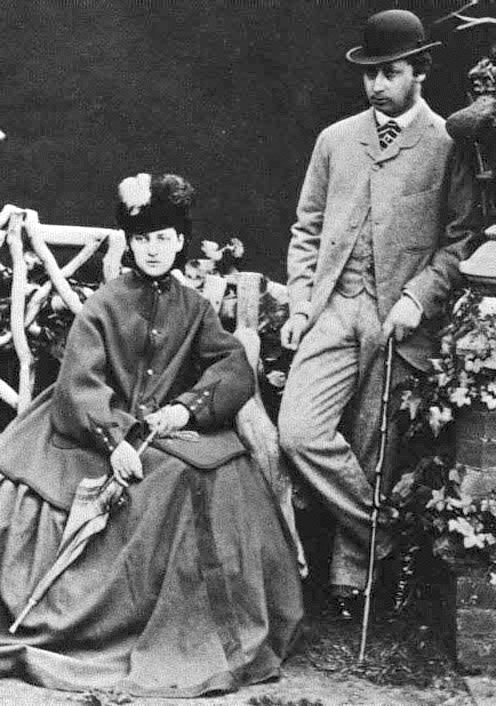|
Robert Ropner
Sir (Emil Hugo Oscar) Robert Ropner, 1st Baronet (born Röpner; 16 December 1838 – 26 February 1924) was a German-British shipbuilder, shipowner, and Conservative Member of Parliament. Career Ropner was born in 1838 in Magdeburg, Province of Saxony, Kingdom of Prussia, the son of Johann Heinrich Röpner and Johanne Christiane Emilie Bessel. He emigrated to England and worked for a coal export concern before building up a fleet of colliers and founding the Ropner Shipping Company in Hartlepool in 1874. In 1888, Robert Ropner acquired a shipyard at Stockton-on-Tees in County Durham. Ropner established a successful shipbuilding firm, which built many trunk deck ships. No longer limited to hauling coal, Ropner also established a company to operate tramp steamers. Although the shipyard went into liquidation soon after what was then known as the Great War, the shipping company continued to operate through both World Wars, despite heavy wartime losses of vessels. Robert Ropner s ... [...More Info...] [...Related Items...] OR: [Wikipedia] [Google] [Baidu] |
Ropner (of Preston Hall) Achievement
Ropner is a surname. Notable people with the surname include: *Sir Leonard Ropner, 1st Baronet (1895–1977), British politician *Pamela Ropner (1931–2013), British writer *Robert Ropner (1838–1924), British shipbuilder and politician *Johanna Ropner (1963–present), British lord lieutenant of North Yorkshire See also *Ropner baronets, British baronetcies {{surname, Ropner ... [...More Info...] [...Related Items...] OR: [Wikipedia] [Google] [Baidu] |
British House Of Commons
The House of Commons is the lower house of the Parliament of the United Kingdom. Like the upper house, the House of Lords, it meets in the Palace of Westminster in London, England. The House of Commons is an elected body consisting of 650 members known as members of Parliament (MPs), who are elected to represent constituencies by the first-past-the-post system and hold their seats until Parliament is dissolved. The House of Commons of England began to evolve in the 13th and 14th centuries. In 1707 it became the House of Commons of Great Britain after the political union with Scotland, and from 1801 it also became the House of Commons for Ireland after the political union of Great Britain and Ireland. In 1922, the body became the House of Commons of the United Kingdom of Great Britain and Northern Ireland after the independence of the Irish Free State. Under the Parliament Acts 1911 and 1949, the Lords' power to reject legislation was reduced to a delaying power. The gove ... [...More Info...] [...Related Items...] OR: [Wikipedia] [Google] [Baidu] |
Jonathan Samuel
Jonathan Samuel (28 February 1853 – 22 February 1917) was a British manufacturer and Liberal Party politician. Family Jonathan Samuel was the son of Thomas Samuel of Tredegar, Monmouthshire and his wife Jane Clara (née Davies). In 1892, he married Hannah Exley the daughter of Joshua Mellor from Huddersfield. They had four daughters.''Who was Who'', OUP, 2007 Career and politics Samuel made his living in manufacturing.''The Times House of Commons, 1910''; Politico’s Publishing 2004 p. 51 He was active in local politics in Stockton-on-Tees being Mayor of the town in 1894–95 and again in 1902. From 1910 until his death in 1917 he was an Alderman of Durham County Council and a member of the Tees Conservancy Board. He also served as a Justice of the Peace for Stockton-on-Tees from 1893. He was first elected to the House of Commons at the 1895 general election when he defeated the sitting Unionist MP, Thomas Wrightson at Stockton-on-Tees. However he lost the seat back ... [...More Info...] [...Related Items...] OR: [Wikipedia] [Google] [Baidu] |
January 1910 United Kingdom General Election
The January 1910 UK general election was held from 15 January to 10 February 1910. Called amid a constitutional crisis after the Conservative Party (UK), Conservative-dominated House of Lords rejected the People's Budget, the Liberal Party (UK), Liberal government, seeking a mandate, lost their majority. The result was a hung parliament: Arthur Balfour’s Conservative Party (UK), Conservatives and their Liberal Unionist Party, Liberal Unionist allies won the most votes, but H. H. Asquith, Asquith’s Liberal Party (UK), Liberals secured the most seats, edging out the Conservatives by two. With Irish Parliamentary Party support, Asquith remained in power. Another election followed in December 1910 United Kingdom general election, December. The Labour Party (UK), Labour Party, led by Arthur Henderson, returned 40 MPs. Much of this apparent increase (from the 29 Labour MPs elected in 1906) came from the defection, a few years earlier, of Liberal-Labour (UK), Lib Lab MPs from the ... [...More Info...] [...Related Items...] OR: [Wikipedia] [Google] [Baidu] |
1900 United Kingdom General Election
The 1900 United Kingdom general election was held between 26 September and 24 October 1900, following the dissolution of Parliament on 25 September. Also referred to as the Khaki Election (the first of several elections to bear Khaki election, this sobriquet), it was held at a time when it was widely believed that the Second Boer War had effectively been won (though in fact it was to continue for another two years). The Conservative Party (UK), Conservative Party, led by Robert Gascoyne-Cecil, 3rd Marquess of Salisbury, Lord Salisbury with their Liberal Unionist Party, Liberal Unionist allies, secured a large majority of 134 seats, despite having received only 5.6% more votes than Henry Campbell-Bannerman's Liberal Party (UK), Liberals. This was largely owing to the Conservatives winning 163 seats that were uncontested by others. The Labour Representation Committee (1900), Labour Representation Committee, later to become the Labour Party (UK), Labour Party, participated in a gene ... [...More Info...] [...Related Items...] OR: [Wikipedia] [Google] [Baidu] |
Hutton Rudby
Hutton Rudby is a village and civil parish situated west of the market town of Stokesley in North Yorkshire, England. At the 2011 census, the village's parish and built-up area subdivision had a population of 1,572 while its main population (including Rudby) had a population of 1,968. From 1974 to 2023 it was part of the district of Hambleton, it is now administered by the unitary North Yorkshire Council. Geography It is situated close to the A19. It is joined to the village of Rudby by a bridge spanning the River Leven. It is near to the towns of Stokesley, Middlesbrough, Yarm and Northallerton. There are six village greens as there were a lot of livestock farmers that lived in and around the village. The parishes of Hutton Rudby, Middleton on Leven, Rudby and Skutterskelfe, since 2016, combined are part of the Rudby neighbourhood planning area. Amenities There are many amenities such as a doctors' surgery, two pubs, two hairdressers, a beauty salon, cricket club, te ... [...More Info...] [...Related Items...] OR: [Wikipedia] [Google] [Baidu] |
Sir Leonard Ropner, 1st Baronet
Sir Leonard Ropner, 1st Baronet, (26 February 1895 – 12 October 1977) was a Conservative Party politician in the United Kingdom. Background Ropner was the son of William Ropner, third son of Sir Robert Ropner, 1st Baronet. Leonard's grandfather, Sir Robert, had come from Germany in 1857 and founded a fleet of merchant ships; as MP he represented Stockton-on-Tees. He was educated at Oatlands, Harrogate and Harrow, obtaining a scholarship to Clare College, Cambridge and took a degree in Political Economy. He was a director of the family business of Sir R. Ropner and Co., the shipping company. Career He enlisted in 1914 in the Royal Artillery and commanded a battery in France, being awarded the Military Cross in 1919. After the war he commanded the Durham Heavy Brigade of the Royal Garrison Artillery in the Territorial Army in the rank of major, and was later appointed their honorary colonel. At the 1923 general election, he was elected Member of Parliament (MP) for Sed ... [...More Info...] [...Related Items...] OR: [Wikipedia] [Google] [Baidu] |
Preston Hall, Preston-on-Tees
Preston Hall is an early 19th century mansion house at Preston-on-Tees, about 4 km south of the centre of Stockton-on-Tees, England. It has been a museum since 1953 and is owned by Stockton-on-Tees Borough Council. It is a listed building. The house stands in of parkland. The grounds of the house form Preston Park. History The manor of Preston on Tees was held in 1515 by William Sayer but was lost when the estates of Lawrence Sayer, who was a Royalist during the English Civil War, were sequestered and sold by the Commonwealth of England. In 1673 the manor was purchased by George Witham and during the residency of the Witham family the manor house was known as Witham Hall. In 1722 William Witham sold the estate to Sir John Eden Bt of Windlestone Hall and in 1820 it was sold again to David Burton Fowler. In 1825 Fowler built the present Preston Hall as a modest two-storey three-bayed rectangular structure with a service wing. The old manor house was retained in use as a farm ... [...More Info...] [...Related Items...] OR: [Wikipedia] [Google] [Baidu] |
Baronet
A baronet ( or ; abbreviated Bart or Bt) or the female equivalent, a baronetess (, , or ; abbreviation Btss), is the holder of a baronetcy, a hereditary title awarded by the British Crown. The title of baronet is mentioned as early as the 14th century; however, in its current usage it was created by James VI and I, James I of England in 1611 as a means of raising funds for the crown. Baronets rank below barons, but seemingly above all grand cross, knights grand cross, knight commander, knights commander and knight bachelor, knights bachelor of the British order of chivalry, chivalric orders, that are in turn below in chivalric United Kingdom order of precedence, precedence than the most senior British chivalric orders of the order of the Garter, Garter and the order of the Thistle, Thistle. Like all British knights, baronets are addressed as "Sir" and baronetesses as "Dame". They are conventionally seen to belong to the lesser nobility, although William Thoms in 1844 wrote tha ... [...More Info...] [...Related Items...] OR: [Wikipedia] [Google] [Baidu] |
Buckingham Palace
Buckingham Palace () is a royal official residence, residence in London, and the administrative headquarters of the monarch of the United Kingdom. Located in the City of Westminster, the palace is often at the centre of state occasions and royal hospitality. It has been a focal point for the British people at times of national rejoicing and mourning. Originally known as Buckingham House, the building at the core of today's palace was a large townhouse (Great Britain), townhouse built for the John Sheffield, 1st Duke of Buckingham and Normanby, Duke of Buckingham and Normanby in 1703 on a site that had been in private ownership for at least 150 years. It was acquired by George III in 1761 as a private residence for Charlotte of Mecklenburg-Strelitz, Queen Charlotte and became known as The Queen's House. During the 19th century it was enlarged by architects John Nash (architect), John Nash and Edward Blore, who constructed three wings around a central courtyard. Buckingham Pala ... [...More Info...] [...Related Items...] OR: [Wikipedia] [Google] [Baidu] |
Edward VII
Edward VII (Albert Edward; 9 November 1841 – 6 May 1910) was King of the United Kingdom and the British Dominions, and Emperor of India, from 22 January 1901 until Death and state funeral of Edward VII, his death in 1910. The second child and eldest son of Queen Victoria and Prince Albert of Saxe-Coburg and Gotha, Edward, nicknamed "Bertie", was related to royalty throughout Europe. He was Prince of Wales and heir apparent to the British throne for almost 60 years. During his mother's reign, he was largely excluded from political influence and came to personify the fashionable, leisured elite. He Wedding of Prince Albert Edward and Princess Alexandra, married Princess Alexandra of Denmark in 1863, and the couple had six children. As Prince of Wales, Edward travelled throughout Britain performing ceremonial public duties and represented Britain on visits abroad. His tours of North America in 1860 and of the Indian subcontinent in 1875 proved popular successes. Despite the ap ... [...More Info...] [...Related Items...] OR: [Wikipedia] [Google] [Baidu] |






